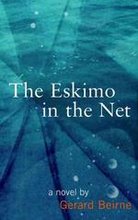Byron's Daughter and Other Dangerous Poetic Tendencies
Dead Beat, that old Merry Prankster is leading you somewhere. Don't be afraid to follow along. You will be the better for it. Your writing will be the better for it. Remember he is peppering the space with dots.
So Byron? Yeah, I know you guys know everything about him, you're writers after all. He was a Lord right? Lived 1788-1824. Born with a club foot. Inherited the title and estates of his great-uncle, the "wicked" Lord Byron, at age 10. Harrow. Cambridge. Friendships with young boys....
"Dead Beat! Dead Beat! (Horace running out of the tool shed) The gossip is mine. Shake yourself to see whether nature planted your vices in you or, perhaps, your own bad habits did, for it's certain that in neglected fields grow weeds that must be burned...."
.... okay, okay! I'll stick to the details....
"Get to the poems, Dad (Hudson ). You did know he was a poet?"
Alright, The Bride of Abydos, The Siege of Corinth, The Prophecy of Dante and all those other puppies. Thing is, it's not so much Georgie Porgy I am interested in as his daughter, Ada. Lady Byron left with her a year after her birth and never did return.
So Byron? Yeah, I know you guys know everything about him, you're writers after all. He was a Lord right? Lived 1788-1824. Born with a club foot. Inherited the title and estates of his great-uncle, the "wicked" Lord Byron, at age 10. Harrow. Cambridge. Friendships with young boys....
"Dead Beat! Dead Beat! (Horace running out of the tool shed) The gossip is mine. Shake yourself to see whether nature planted your vices in you or, perhaps, your own bad habits did, for it's certain that in neglected fields grow weeds that must be burned...."
.... okay, okay! I'll stick to the details....
"Get to the poems, Dad (Hudson ). You did know he was a poet?"
Alright, The Bride of Abydos, The Siege of Corinth, The Prophecy of Dante and all those other puppies. Thing is, it's not so much Georgie Porgy I am interested in as his daughter, Ada. Lady Byron left with her a year after her birth and never did return.
"A bit like Jim Morrison and Paris."
"No Hudson, nothing like Jim Morrision and Paris....
Anyway all you so called Byron groupies out there, what can you tell me about her, Ada Lovelace? Humh?
Anyway all you so called Byron groupies out there, what can you tell me about her, Ada Lovelace? Humh?
"Did you say Linda Lovelace?"
"Hudson, leave it out...
Let Dead Beat tell you all about it, how Lady Byron wished her daughter to be unlike her poetical father, and she saw to it that Ada received tutoring in mathematics and music, disciplines which would counter her dangerous poetic tendencies.
Let Dead Beat tell you all about it, how Lady Byron wished her daughter to be unlike her poetical father, and she saw to it that Ada received tutoring in mathematics and music, disciplines which would counter her dangerous poetic tendencies.
In 1828 she produced the design for a flying machine. When she was just 17 she met Charles Babbage, Lucasian professor of mathematics at Cambridge, and became a lifelong friend..."
"Whoh Dad!"
"Y-e-s, H-u-d-s-o-n!"
"Is that the same Cabbage considered to have invented the first computer?"
"Babbage, Hudson, Babbage. But yes you're right. He was known as the inventor of the Difference Engine, an elaborate calculating machine that operated by the method of finite differences. He then made plans in 1834 for a new kind of calculating machine (although the Difference Engine was not finished), an Analytical Engine. In 1842, an Italian mathematician, Louis Menebrea, published a memoir in French on the subject of the Analytical Engine. Babbage enlisted Ada as translator for the memoir, and during a nine-month period in 1842-43, she worked feverishly on the article and a set of Notes she appended to it.
Ada called herself "an Analyst (& Metaphysician)," and the combination was put to use in the Notes. She understood the plans for the device as well as Babbage but was better at articulating its promise. She rightly saw it as what we would call a general-purpose computer. It was suited for "developing and tabulating any function whatever. . . the engine [is] the material expression of any indefinite function of any degree of generality and complexity."
Her Notes, by the way, anticipate future developments, including computer-generated music.
"Good story, Dad."
"Thank you Hudson."
"And it's point?"
"It's point, Hudson! It doesn't have to have a point, does it? It's a dot. A Hofstadter dot."
"Poetry and math. That's what you're about Dad, don't think I don't know."
"So why ask, hot shot? Go eat your kibble."











No comments:
Post a Comment